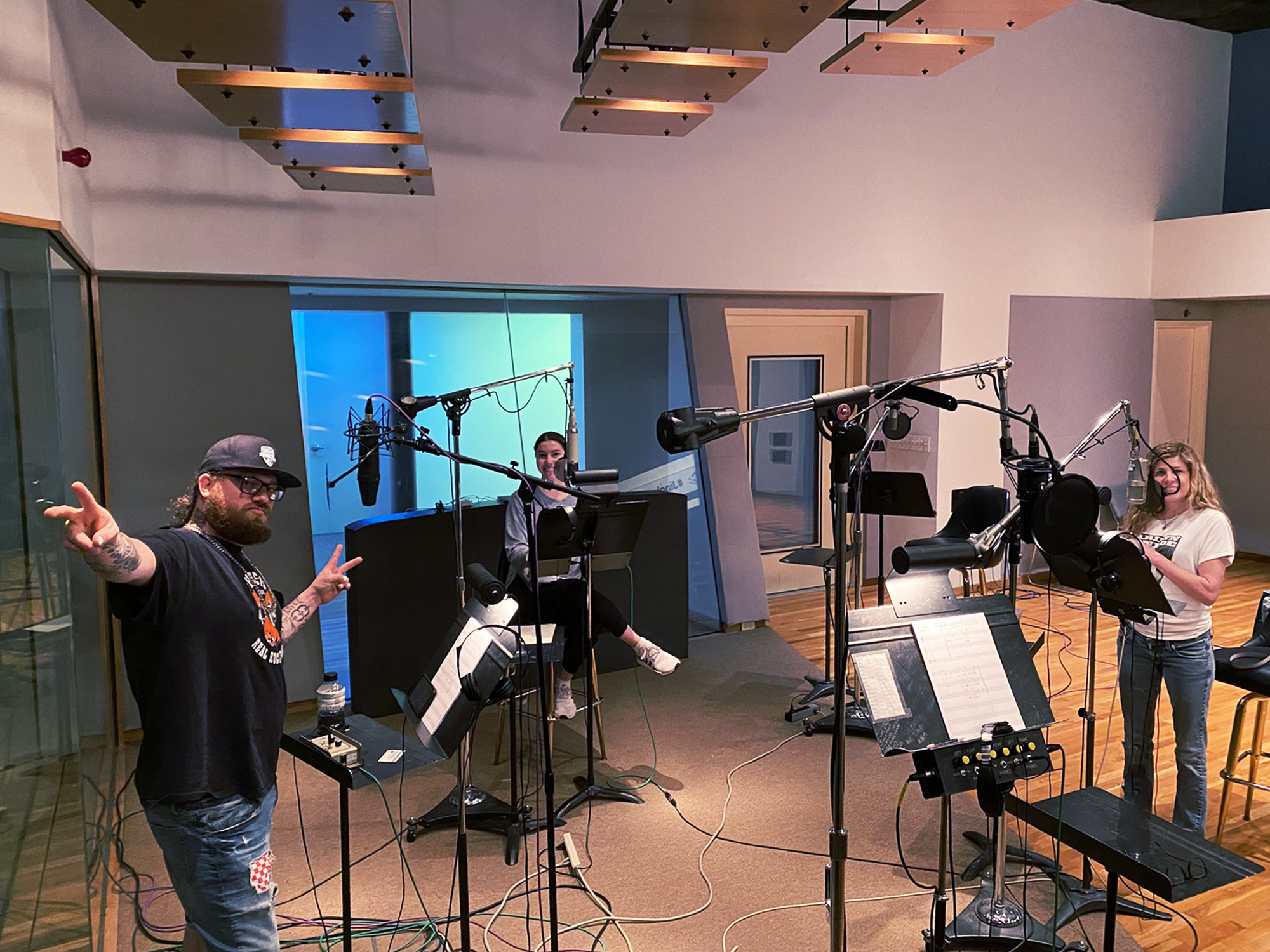Advertising jingles are earworms – we all know that. Think Go Compare, or Just One Cornetto, or the universal clarion call of I’m Lovin’ It from McDonald’s. Cleanfeed has become such a staple that TM Studios says it is one of the ‘most important tools in the studio’ for creativity, speed, collaboration and not being tethered to talent in one location.
One company that knows all about the power of a good earworm is TM Studios, a full-service US sound agency and one of the largest jingles companies in the world. For more than 50 years, TM Studios has been creating and distributing audio in the form of jingles, station idents, tags, slogans, beds and much more for the international radio community. Indeed, the company is so successful that its ‘mini hits between the hits’ are heard by over 40 million people, every day.
Based in Dallas, Texas, TM Studios is currently owned by UK music producers Dave Bethell and Chris Stevens, and US singer, writer and producer of jingles Greg Clancy. The triumvirate acquired the business from Cumulus Media’s Westwood One in December 2020.
“It was a crazy time to acquire a business,” says Dave Bethell. “We were right in the middle of a global pandemic, and everyone had stopped spending. Branding a radio station was the last thing anyone wanted to think about when the whole world was in lockdown.”
However, Dave was confident that realigning TM Studios with the entrepreneurial spirit that started the company was the only path to take.
“I knew the company well because I had been working for TM as a composer and consultant for almost 20 years,” he explains. “In 2019 I joined full time and during Covid I recognised the need to take a company that was failing its corporate owners and instead become a useful supplier and creative partner to them. Independence was its future, so I put together a plan to acquire the business.”
Originally from Kent, Dave Bethell moved to the US in 2014 and is now based in Temecula where he has his own recording studio. His career has encompassed many different audio roles, from composing music for radio and TV through to jingles production and voiceover work. In 2012 he was one of the official voices for the London Olympic Games and his voice was heard by over a billion people worldwide.
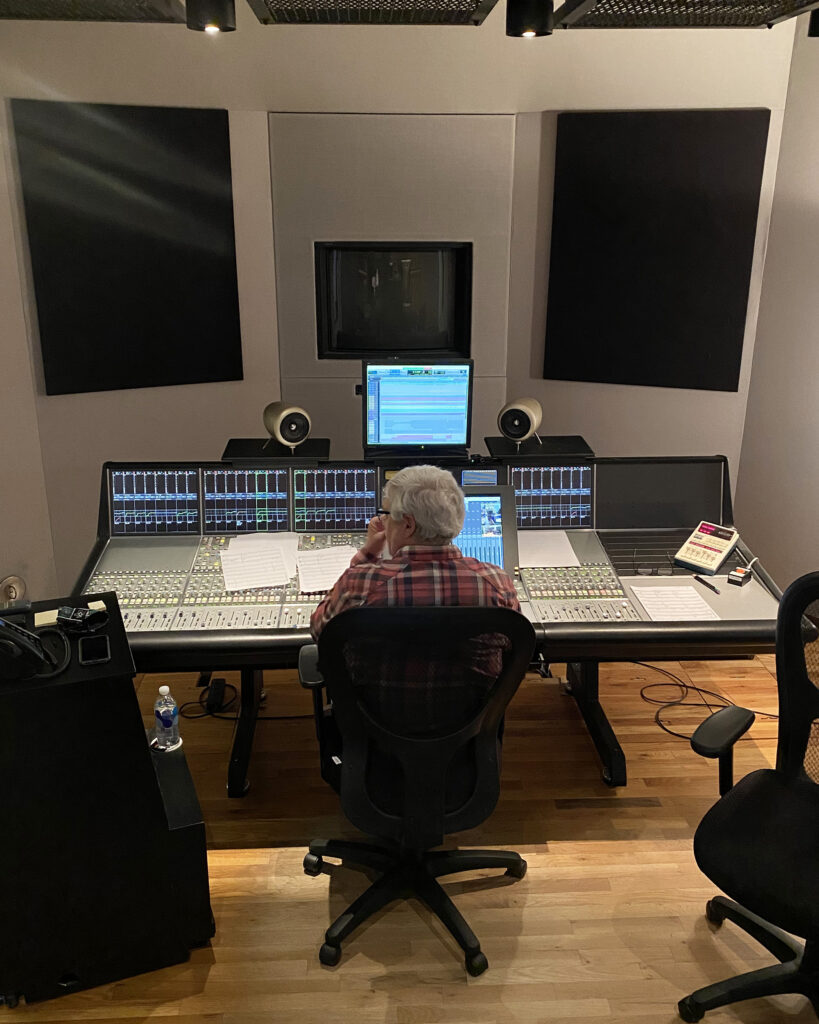
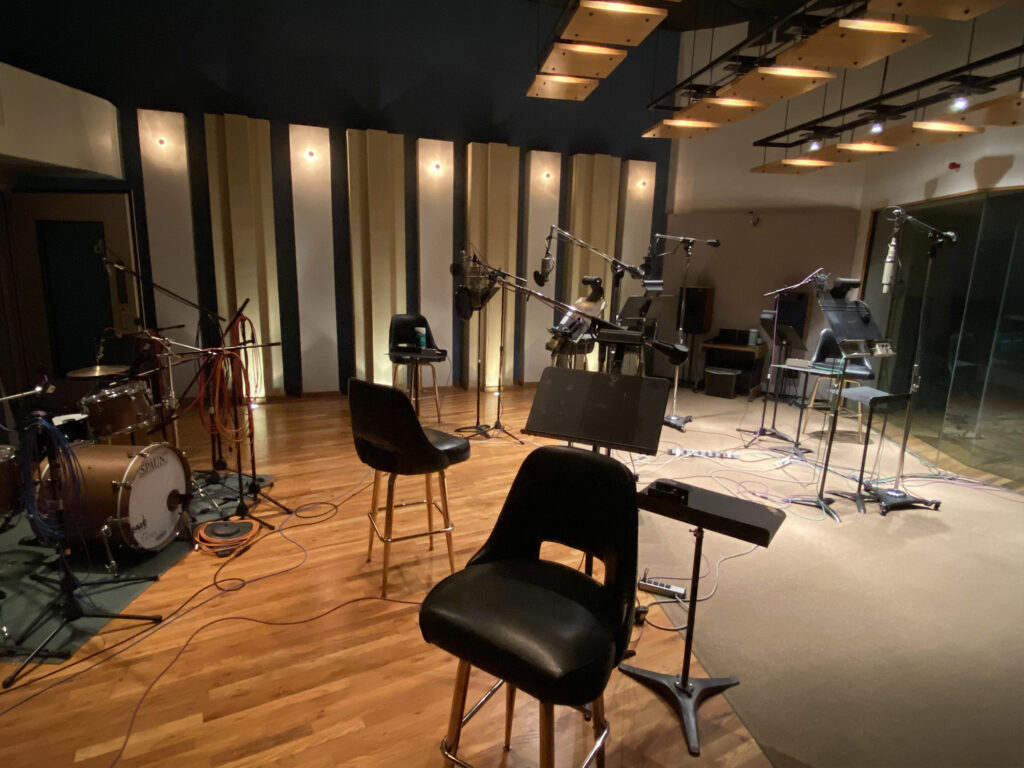
Acquiring TM Studios at such a difficult time meant having to think outside the box and find new ways for the business to operate.
“There was a requirement to do things differently, says Dave. “TM has a history of reinventing itself – it is one of the reasons why it has survived for over 55 years. In the radio world companies often come and go because they won’t change with the times. TM needed to evolve in order to survive, so we began by looking at how we could be nimbler than our competitors. We also listened to our customers and identified the problems they were facing every day, then we set out to resolve them.”
The biggest problem was a serious curtailment of budgets. Radio stations still needed high quality music and jingles to support their lifeblood advertising revenue, but they weren’t in a position to pay top dollar to create it. In addition, lockdown and travel restrictions made it impossible to bring musicians into the studio to play together, or for radio station and advertising clients to be present on a session so they could give approvals.
Faced with this stark reality, TM Studios had to find a way to work remotely if it wanted to keep its revenue flowing.
The answer, says Dave, was two pronged: firstly, the company needed to make internal cost savings by both restructuring the operation at its headquarters in Dallas and bringing in freelance talent around the globe on a project-by-project basis; secondly, it incorporated Cleanfeed live recording software into its workflow so that musicians and clients could take part in remote sessions.
“Cleanfeed was a massive part of the solution,” Dave says. “I knew the software well because I had been using it for some years, both as a voiceover artist and in my own production music company. Therefore, it was easy to see how incorporating it into TM Studios’ workflow could make us more agile and keep us operating during lockdown.”
Musicians who normally made their living by playing live were suddenly out of work and in need of an income. Dave Bethell realised that tapping into this pool of latent talent would be key to TM Studios’ success.
“Many of these musicians were setting up studios at home, but they were scattered all over the country because they had gone home to places where rents were cheaper,” he explains. “The question was how could we connect to them? How could we hear what they were doing in their studios and how could I also be present in order to direct them during a session? We quickly worked out that we could connect over a video call, but most of those softwares didn’t give us the audio quality we needed for professional results. What I needed was a software that allowed them to sound as though they were in the studio with me – and that’s where Cleanfeed came in.”
In conjunction with his engineering team in Dallas, Dave found a way to run Cleanfeed through the SSL console in his own studio in California.
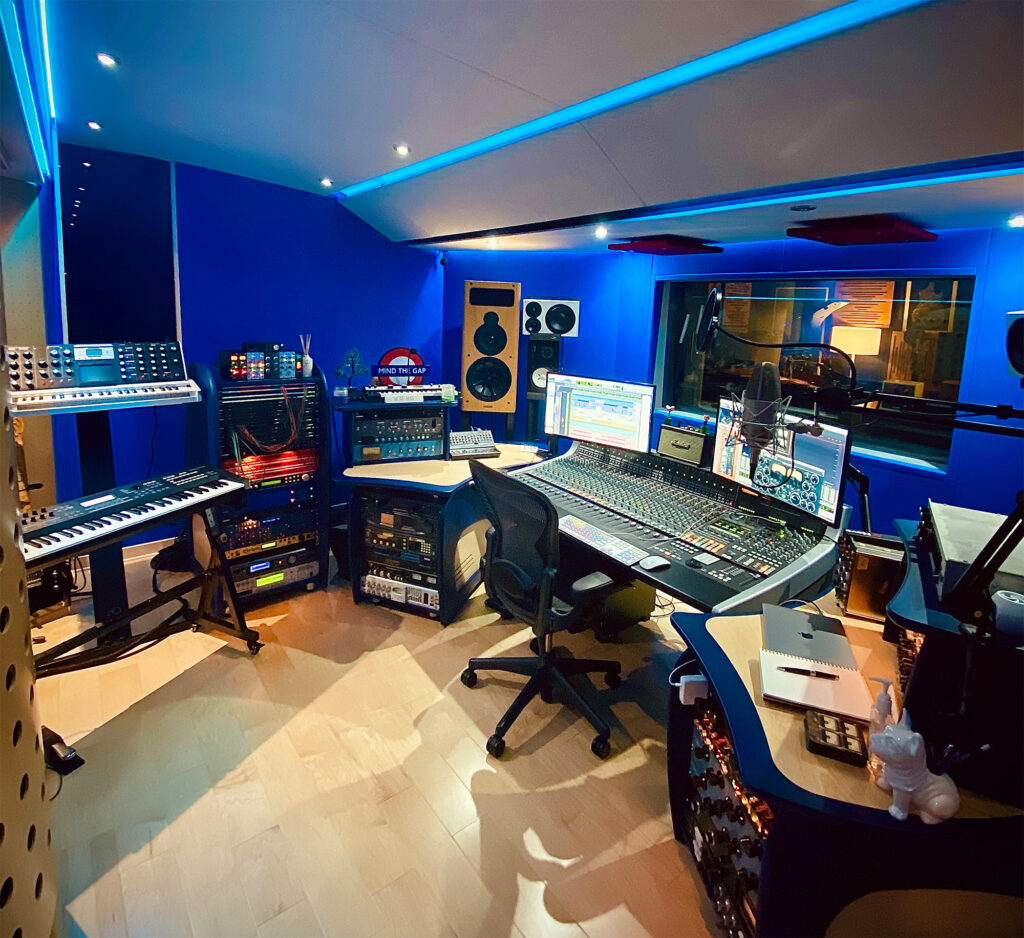
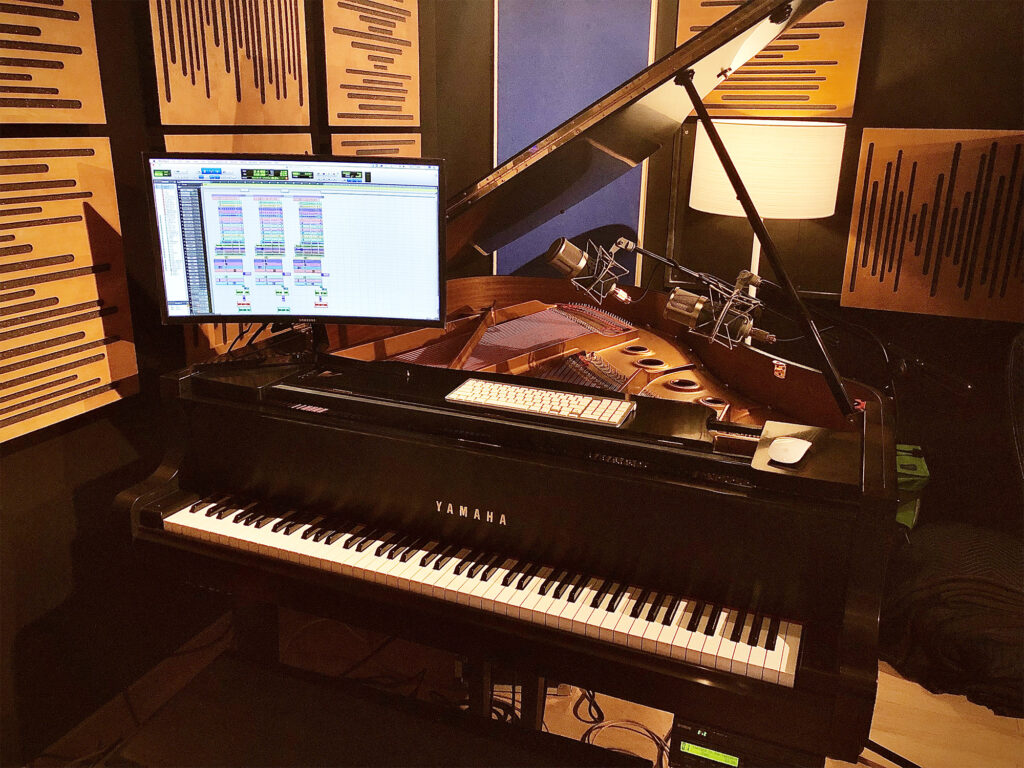
“It was what I’d call a plug it and patch it and try stuff out approach,” he laughs. “We just wanted it to work for us, so we didn’t ask Cleanfeed if there was an officially approved method. It was trial and error. We patched Cleanfeed into two faders on the console, which gave me two channels of stereo going both ways. This meant I could monitor the musicians and also have them on talkback so I could direct the session remotely. I used my studio computer to run Pro Tools and the audio so it was all going through one sound card, then I used a second machine to run the input and output of Cleanfeed so I could hear it on a separate set of faders.”
Sessions would often involve musicians in their own home studios, or in TM’s own facility in Dallas.
“They could hear me and hear the track they were playing to, while I could hear everything and share the Pro Tools screen with my engineers in Dallas where all the recording was taking place,” he says. “We had a camera set up, too, so I could see what was happening in the main studio via Zoom, which had its audio muted. It worked because Cleanfeed is so reliable and doesn’t have the latency issues that you often get with solutions like Skype or Zoom. I could hear everything very clearly and with very little delay.”
Nearly three years on from its first introduction into TM Studios’ workflow, Cleanfeed has become such a staple that Dave Bethell says it is one of the ‘most important tools in the studio’ for creativity, speed, collaboration and not being tethered to talent in one location.
“Apart from its obvious technical advantages, Cleanfeed is really flexible because there is no limit on the length of the time a session can run for, or the number of people who can join it,” Dave explains. “We can invite anyone we want on the session via a simple web link and all they have to do is click on it. No need for any technical knowledge or getting to grips with plug ins or complicated equipment. Clients who are not tech savvy love it because it is so easy – and it saves them from having to physically be at a session because they can be present virtually and still hear exactly what is going on.”
TM Studios now uses Cleanfeed every day and on virtually every piece of audio it produces. It has become adept at connecting and working remotely with musicians based all over the world, which means it can keep overheads low and negotiate much better rates for its clients. “There is beauty in the simplicity of Cleanfeed,” Dave Bethel adds. “It has been designed so it can be as clever as you need it to be, or as simple as it needs to be. For us it is invaluable.”
